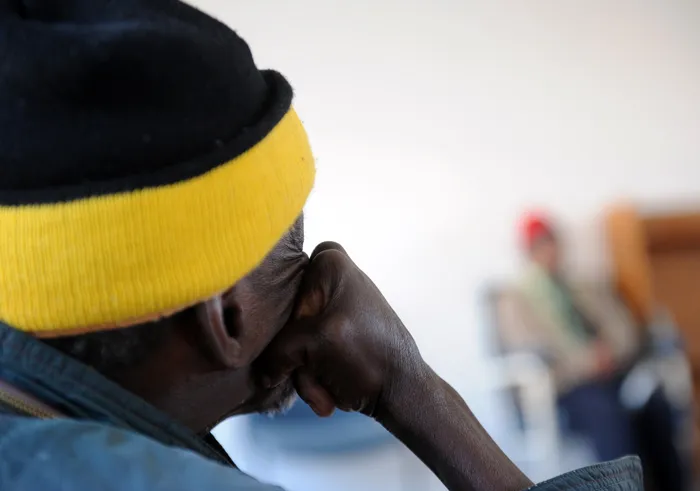Caring for a loved one diagnosed with dementia

Obtaining a medical diagnosis of dementia will give family members or caregivers access to information, resources and support, assist in exploring available drug and non-drug therapies and help loved ones to plan and prepare for the future, says Madelein Duvenage, a regional manager for the Association for Dementia and Alzheimer’s of South Africa. File picture for illustration only: Ayanda Ndamane/ African News Agency (ANA)
Caring for a loved one with dementia can be daunting for family members and caregivers without the necessary support, says Madelein Duvenage, a regional manager for the Association for Dementia and Alzheimer’s of South Africa.
With September being World Alzheimer’s Month (September 21 is World Alzheimer’s Day), Sister Duvenage notes that dementia is a syndrome that causes a deterioration in cognitive functions, while Alzheimer’s, as one of its causes, is responsible for 60-80% of dementia cases worldwide.
“Alzheimer’s is a degenerative brain disease that is caused by complex brain changes following cell damage. It leads to dementia symptoms that gradually worsen over time,” she says.
“The most common early symptom of Alzheimer’s is trouble remembering new information because the disease typically impacts the part of the brain associated with learning first.”
Common symptoms in the early stages include memory loss, difficulty in performing familiar tasks, language problems, disorientation in time and place, poor or decreased judgement, and problems with concentration and with planning or organising.
Furthermore, the person can be prone to misplacing things, experience changes in mood or behaviour, or have trouble with images or spatial relationships and withdraw from work or social activities.
Once these symptoms are displayed in a loved one, getting a medical diagnosis is crucial as it will assist families in many aspects of the condition.
Sister Duvenage says obtaining a medical diagnosis will give family members or caregivers access to information, resources and support, assist in exploring available drug and non-drug therapies and help loved ones to plan and prepare for the future.
Furthermore it will give families access to information on how to improve their loved one’s quality of life, how to inform others and colleagues, especially when needing to ask for help. Additionally it will help to demystify and destigmatise the condition.
Another important factor in diagnosis is to know what type of dementia your loved one has been diagnosed with.
“When you have a diagnosis and know which dementia the person is suffering from, one can gather information with regards to the expected deterioration, changes in behaviour and care needs. This will enable one to prepare oneself mentally for the deterioration but also equip oneself with knowledge to manage challenging situations.”
While the disease is not a normal part of ageing, the greatest known risk factor for being diagnosed with Alzheimer’s is increasing age, says Sister Duvenage.
Once a diagnosis has been made, the starting point for families or caregivers is to create what Sister Duvenage describes, as a “dementia-friendly” home.
Getting rid of printed carpets - which can be difficult to navigate for someone experiencing perceptional changes - and improving lighting are just some of the things to consider when doing this, along with removing safety hazards and arranging supervision, possibly with the use of a tracking watch, she says.
In determining the level of care required and for the design of a detailed care plan, she suggests consulting an occupational therapist and doing an assessment by a registered nurse.
“This will assist in determining the person living with dementia’s unique needs with regards to likes, dislikes, cognitive and functional ability to perform tasks and activities.”
Moving the person to a care facility depends on the care and love they need and whether it can be provided, she says, but adds, “When the person living with dementia and the carer’s health (physical and mental) as well as their safety is being compromised, one should rather move the person with dementia to a dementia care facility.”
Jeffrey Hendricks, a qualified carer from the Strand who has specialised in caring for patients with Alzheimer’s and dementia for ten years, says such a facility should have sufficient security in and around the premises.
“This is firstly the most important thing to look at and have the facility staff explain the safety measures in place in detail before making a decision,” he says, noting the importance of access-controlled gates.
“Patients with this condition enjoy being stimulated with activities like paint or others and need to have a space where they can be accommodated to do so. They shouldn’t be kept apart from participating in activities or kept in isolation or in a place that feels isolated to them,” he adds.
Carers must have compassion, patience an understanding of the patient’s needs and be able to deal with aggression or sudden mood changes, he says.
“It shouldn’t be someone who forces their authority down on the patient but rather someone with empathy and understanding of the condition who is still willing to give the person freedom, especially allowing the patient to still move freely by taking them for supervised walks.”
Family members who can’t afford care facilities can undergo training or get the help of a trained professional carer to assist, he says, adding that when caring for someone at home it is important to keep them in sight at all times.
Kitchen areas should be cordoned off, as someone with dementia is prone to switching appliances on and forgetting about them, posing a danger to themselves and the household, he says.
“People caring for the patient must be well-trained, and doing one course is not enough. Families must check the carer’s credentials and ensure he or she is fully trained.”
The Association for Dementia and Alzheimer’s of South Africa has resources and information on dementia training, support groups, care facilities and counselling services in various provinces. Visit, www.adasa.org.za for more information.
Related Topics: